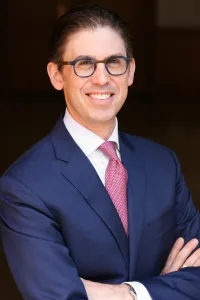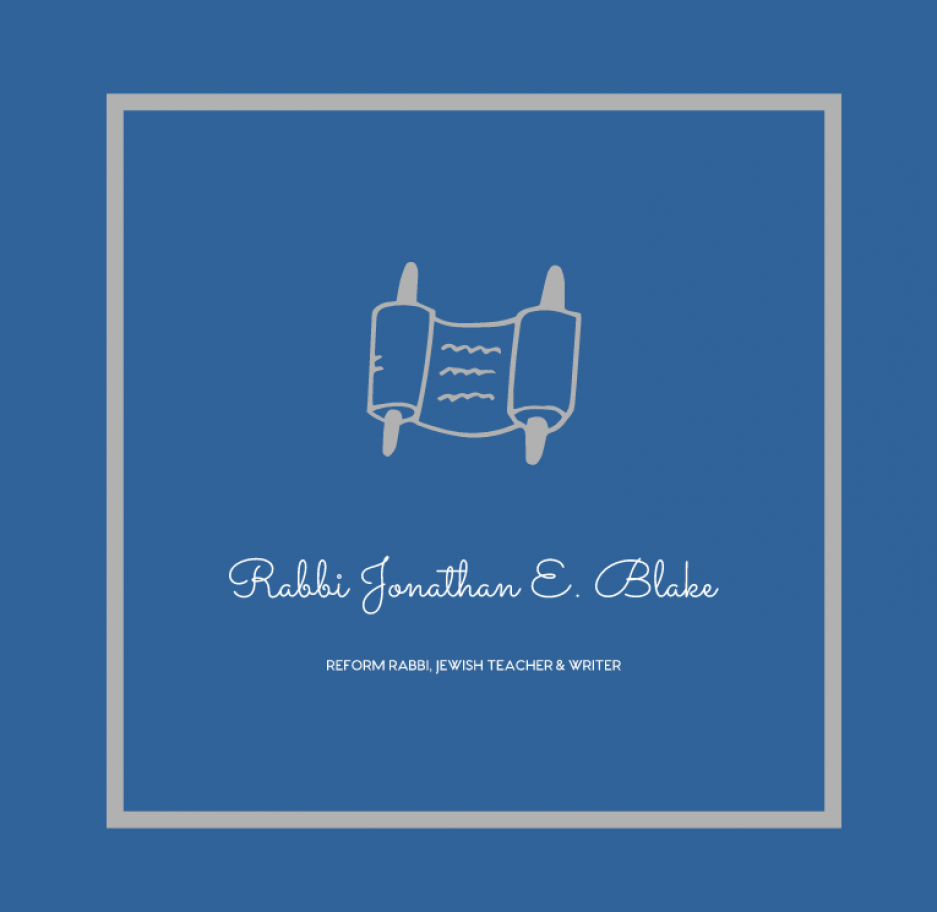REMARKS DELIVERED FRIDAY, NOVEMBER 2, 2018
WESTCHESTER REFORM TEMPLE
The Torah portion we read this Shabbat is called Chayei Sarah, which means “the life of Sarah” but whose first verse records the matriarch’s death. No cause of death is announced, but there it is, staring us in the face—the first death to touch the first Jewish couple.
The Rabbis looked around for a cause of death, and found it in the verses immediately preceding this week’s opening line—that is to say, the last verses of last week’s portion. That portion concludes with the harrowing story of the Binding of Isaac, and the last thing we read is that Abraham returned to his tent alone. Maybe Isaac, traumatized by the near-death experience, went off on his own, without his father, without his mother. All we know is what happens next—Sarah dies. Midrash makes it possible to conclude that Sarah died of a broken heart.
This week, we understand how Sarah felt. Every heart in this room is staggering to carry the weight of the grief and anger and bewilderment that we feel at the murder of eleven of our brothers and sisters as they sat in their synagogue, the Tree of Life congregation in the Squirrel Hill neighborhood of Pittsburgh, last Shabbat.
They had come to shul to pray, to celebrate Shabbat, and to welcome a newborn boy into their community. They were just like we are.
Like broken-hearted Sarah collapsing at the news of her traumatized son, each one of us must now grapple with the reality that this is what can happen to Jewish people in the United States of America in the year 2018.
Over the last week, too many have described last Saturday’s atrocity as “senseless.” Of all the adjectives befitting this crime, “senseless” does not come to mind. Sadly, it makes all too much sense, given current realities.
We must understand that, in America in 2018, this nightmare is not some random aberration, but a sign of the times in which we are living, a representation of three larger forces that are colliding to make violence against Jewish communities a predictable phenomenon:
First and foremost: a resurgence of anti-Semitism. In its annual Audit of Anti-Semitic Incidents, ADL found that the number of anti-Semitic incidents in the United States rose 57 percent in 2017 – the largest single-year increase on record and the second highest number reported since ADL started tracking such data in 1979. This is not a politically one-sided issue. Anti-Semitism finds expression on the left among supporters of BDS (the Boycotts, Divestment, & Sanctions movement) and in surging anti-Israel sentiment on college campuses and in the media. Virulent demagogues like the unrepentant antisemite Louis Farrakhan have enjoyed increasing support from prominent public figures over the last year, including activist Tamika Mallory, national co-chair of the Women’s March. On the right, Anti-Semitism has been taken up with new boldness by a loose coalition of white nationalists and anti-immigration zealots who have exploited nativist fears of foreigners in order to foment hate. And of course Anti-Semitism currently finds a hospitable audience abroad, both in Europe and in the Middle East, particularly among jihadist extremists And their sympathizers. We must recognize that, in 2018, when a person declares “All Jews must die”—in speech, or on Facebook, or by tweet—this must be interpreted as a statement of intent. That person should be taken at his word. In my lifetime, we have never had greater cause to be vigilant than at this moment.
Secondly, a fractured national conversation. When hateful and divisive speech is given a public platform, we should not be surprised when violence follows. It is heartening that, following the Pittsburgh attack, the President of the United States vigorously called out Anti-Semitism as a “hateful poison,” a sentiment echoed by many of our elected officials.
Still, history has shown that whenever nativism and xenophobia are given the ability to flourish, it often ends badly for the Jews. There is a direct line between neo-Nazis marching on Charlottesville in August 2017 and the mass murder perpetrated by Robert Bowers in Pittsburgh in October 2018.
It is true: not all nativists are Anti-Semites. But, the inverse is also true: most hardened Anti-Semities hold strongly nativist views. The murderer at the center of the Pittsburgh massacre, we now know, channeled his rage into demonizing foreigners, immigrants, and refugees. In this regard, the criminal was given aid and comfort by all who espouse similarly toxic prejudices.
In such a divisive climate, It is only a matter of time before some deranged and disaffected individual, whose wrath and sense of grievance has been stoked to a white-hot flame, takes a gun and acts on his worst impulses.
And that takes us to the third reality: unchecked access to dangerous weapons, by dangerous people. We are the only first-world country that regularly experiences mass shootings. More than 30,000 Americans die each year by bullet. We have done too little to enforce and strengthen existing laws, and we have done too little to create legislation that could require safe and responsible use of firearms (see how Israel does this for one compelling example). We have failed to use promising new technologies to create safer firearms, like fingerprint-recognizing weapons. And we have continued to allow lobbyists and elected officials to tell us that the answer is more guns.
So, that’s the reality. The question now is, what can we do?
First and most importantly, you are here. You came tonight. You came because you always come to Shabbat services; or because you read about our fantastic rabbi-in-residence, Jeff Salkin who will join us and our Jewish Learning Lab families throughout the weekend for family education; or because you are celebrating a simcha like a Bat Mitzvah or a forthcoming wedding and your synagogue is where you mark the meaningful moments of your life; or because you needed to mourn; or because praying for healing for others does a lot to heal our broken spirits, too; or because you discovered that millions of people, in churches and mosques and communities of every kind, are also with us tonight in love and in prayer; or because you saw the hashtag #showupforshabbat and you did; or because you don’t know why, but you needed to be in your synagogue tonight, and here you are. You are here. You are where you belong.
Secondly, we have prepared a resource packet so that you can direct your funds, your energies, and your activism toward some of the people and organizations that need you most, in Pittsburgh, in the Jewish community, and in the world. Please take one on your way out tonight. But above all, the best way you can turn your thoughts into action is to get up on Tuesday morning and go out and vote—and tell your children and grandchildren of eighteen years and older that they must also vote.
Finally, there is one last thing we all can do, right now. Months ago, we designated this Shabbat service as a night for honoring our civil servants—our police officers, firefighters, ambulance corps, emergency responders, and so many others who give of themselves and who put themselves in danger in order to create a community that is safe, joyful, and thriving. As I ask all those who are here tonight to be recognized to rise, I also ask the congregation please to take a moment to join me in thanking our civil servants for their tireless work on behalf of our community.
In their moment of need, the Tree of Life congregation immediately received the support of brave civil servants who came to their rescue and were wounded in the effort, who evacuated and treated the injured and who brought the accused into custody. Here at WRT we are grateful every single day for all that our civil servants do to keep us safe and to allow us to continue to mark the moments of our lives, great and small, in our shared spiritual home. Thank you.
Our portion this week reminds us that we have endured much trauma as a people. Too many Jewish lives have ended in violence. Too many Sarahs have collapsed in horror, grieving children who never came home.
And yet, at the end of this most difficult week, we stand together, resolute, grateful, united, determined that our enemies will not be given the last word, that we have too much holy work left to do, too much light left to bring into a hurting world, to be scared away from our synagogues.
Let this Shabbat Chayei Sarah—this Sabbath of mourning for all the slain, of praying for healing for all the hurting, be also a Sabbath of love and solidarity for the Jewish people and all people of goodwill, and let us say, Amen.

